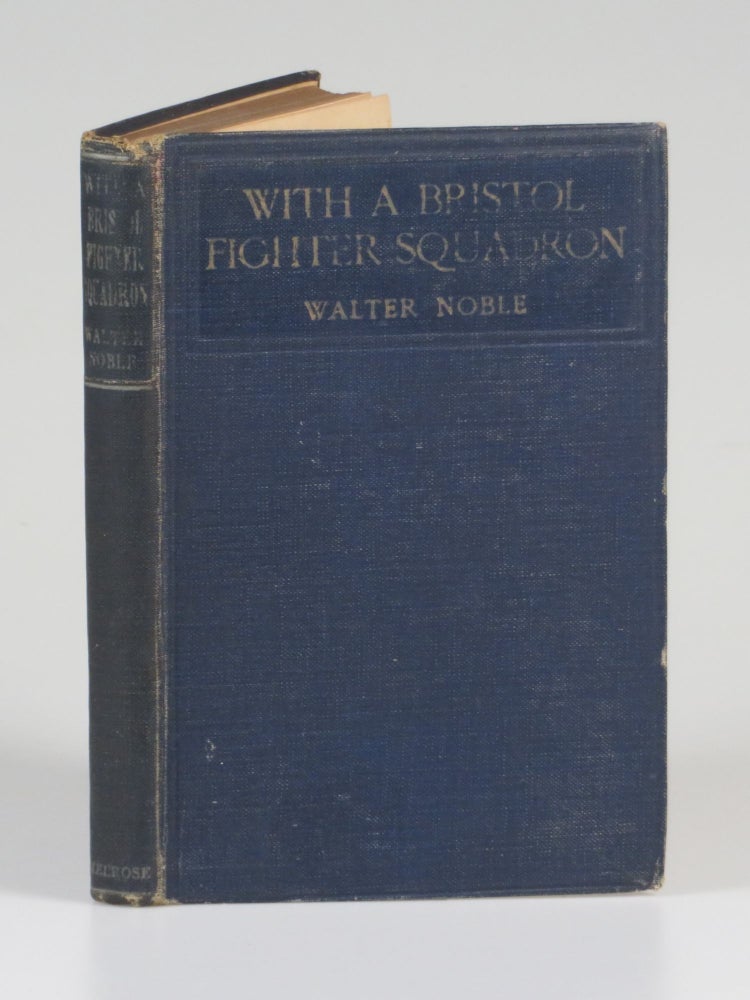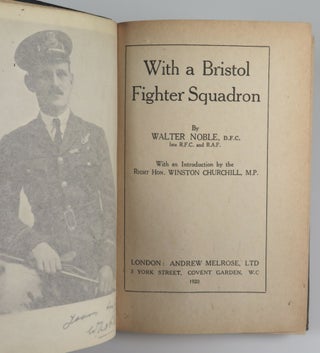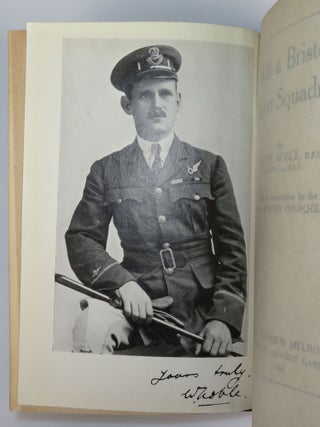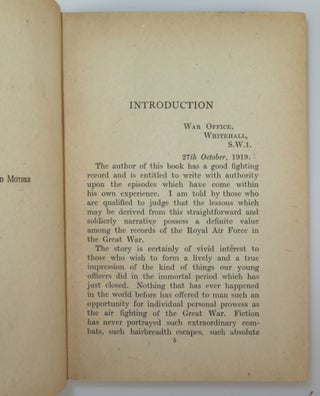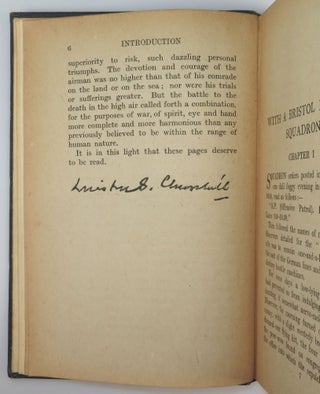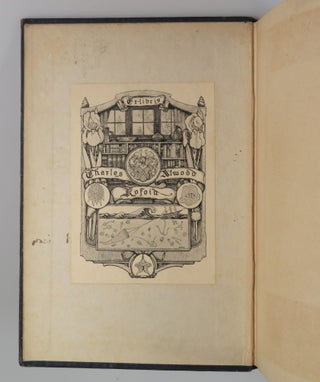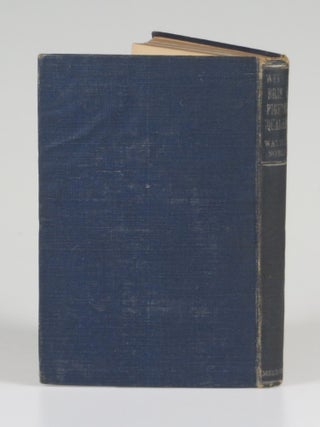With A Bristol Fighter Squadron
London: Andrew Melrose, 1920. First edition. Hardcover. This improbably scarce book is the first edition of the memoirs of First World War flying ace Walter Noble. The book is particularly noteworthy for a substantive introduction by Winston S. Churchill, then serving as Secretary of State for War and Air.
This 1920 first edition is not to be confused with the 1977 Cedric Chivers large type edition, which is both substantially larger and considerably less sought and valuable. Condition of this copy is good plus, sound and complete. The navy cloth binding is square and tight, though with overall scuffing and blistering of the cloth to the upper rear cover. The contents are substantially clean, age-toned but with no spotting. An illustrated previous owner bookplate is affixed to the front pastedown and the rear pastedown shows some scarring, as if something adhesive were long ago removed. The binding is fitted with a clear, removable, mylar cover.
Credited with 12 aerial victories, Walter Noble was awarded the Distinguished Flying Cross (DFC) in 1918. The London Gazette noted: “2nd Lt. Walter Noble (formerly Essex Regt.). A skilful and determined observer who has been most successful in destroying enemy machines, very often when in superior strength to his own formation.”
Before the war, Noble was a tea planter in India. He returned to England to enlist, initially serving with the Essex Regiment before joining the Royal Flying Corps in 1917. With a Bristol Fighter Squadron, his memoir, features a two-page introduction by then-Secretary of State for War and Air Winston S. Churchill. Churchill’s introduction, at pages 5-6, is headed “WAR OFFICE, WHITEHALL, S.W.1.”, dated “27th October, 1919”, and is signed in facsimile. “The author of this book has a good fighting record and is entitled to write with authority… the lessons which may be derived from this straightforward and soldierly narrative possess a definite value among the records of the Royal Air Force in the Great War… Nothing that has ever happened in the world before has offered to man such an opportunity for individual personal prowess as the air fighting of the Great War. Fiction has never portrayed such extraordinary combats, such hairbreadth escapes, such absolute superiority to risk, such dazzling personal triumphs.”
That the busy Secretary of State for War and Air would take the time to contribute an introduction was less surprising than it might seem.
Even before the First World War, Churchill was fully engaged in powered flight’s possibilities. Being Churchill, of course he trained as a pilot himself. But it was in his official capacities that he truly advocated and advanced the military potential of flight. As first Lord of the Admiralty (1911-1915), he “sought out the small band of adventurous officers who were the pioneers of naval aviation” and “In 1912 he founded the Royal Naval Air Service – a precursor of the Royal Flying Corps and, later, the Royal Air Force… Because of his efforts, England became the first country to equip a plane with a machine gun, and the first to launch an airborne torpedo.” (Manchester, The Last Lion, Vol. I, p.444)
In January 1919, nine months before he wrote the Introduction for this volume, Churchill was appointed Secretary of State for Air. In the First World War's aftermath, Churchill understood and embraced the military potential of air power and used his position - not without resistance - to make military aviation a priority. He sought to build resources and organizational capacity, but also to ensure that the Air Force remained integrated within a unified Defence Ministry.
The vision of air power as integral to an effective future military force was prescient; two decades later, Prime Minister Winston Churchill would famously praise the British pilots ("Never in the field of human conflict was so much owed by so many to so few.") who played the vital role in preventing Nazi invasion.
Reference: Cohen B23.1. Item #006992
Price: $1,200.00

